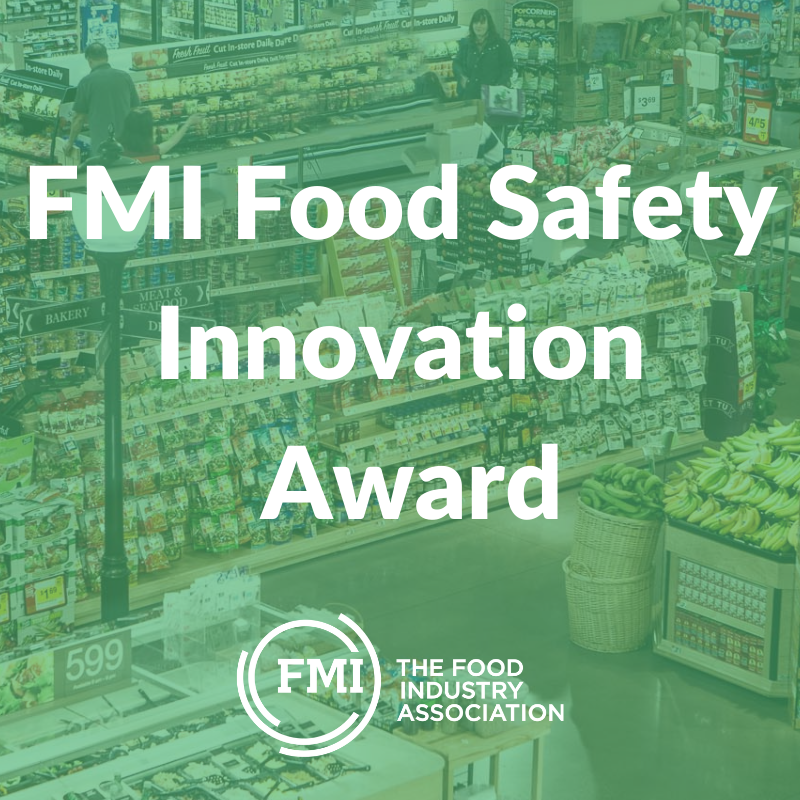By: Hilary Thesmar, PhD, RD, FMI Vice President, Food Safety Programs, Food Marketing Institute

Do you suffer from an allergy? If you don’t, more than likely you know someone who does. More than 50 million Americans suffer from allergies each year. The prevalence of reported food allergies has significantly increased throughout the years with an estimated four to six percent of children and four percent of adults being affected by food allergies, according to the Centers for Disease Control (CDC). The symptoms and severity of food allergy reactions can vary between people, ranging from a mild response (such as itchy, tingling tongue) to anaphylaxis.
Food allergens are food safety risks that impact everyone in the food industry. At the retail level, activities to control food safety risks can be divided into four key areas: the supplier and source of foods and food ingredients; in-store practices and procedures; education and training of employees and food handlers; and consumer engagement. A comprehensive approach to food safety management must address each of these areas.
FMI recently published a Retail Allergen Resource Guide to address food allergens with store brand products, in-store practices and procedures, employee and customer awareness and engagement. Development of the Retail Allergen Resource Guide was a collaborative effort to provide insight, resources and information on food allergen management at retail.
The retail food industry plays a significant role in assuring a safe food supply for its customers which includes ensuring accurate information is provided to the consumer via the product label. An accurate label is not only critical to informing the consumer of the contents of the item, including allergens; it is also a regulatory requirement. Under the Food Allergen Labeling and Consumer Protection Act of 2004 (FALCPA), packaged foods are required to comply with federal allergen labeling requirements. Any packaged food containing one of the eight major food allergens (i.e., milk, egg, wheat, peanuts, soybeans, tree nuts, fish and crustacean shellfish) or containing protein derived from the eight major allergens must be declared on the food label.
Retailers should take steps to raise awareness with customers about the use of allergen ingredients within fresh departments as well as any allergen ingredient changes that are made with Consumer Product Goods (CPG) products. Grocery retailers can help customers increase their awareness of food allergens by posting print brochures, company webpages, social media, and in-store signage, such as the FMI Food Allergy Awareness Poster.
Want more information? Visit FMI’s Center for Food Retail and Defense.


 Industry Topics address your specific area of expertise with resources, reports, events and more.
Industry Topics address your specific area of expertise with resources, reports, events and more.
 Our Research covers consumer behavior and retail operation benchmarks so you can make informed business decisions.
Our Research covers consumer behavior and retail operation benchmarks so you can make informed business decisions.
 Events and Education including online and in-person help you advance your food retail career.
Events and Education including online and in-person help you advance your food retail career.
 Food Safety training, resources and guidance that help you create a company food safety culture.
Food Safety training, resources and guidance that help you create a company food safety culture.
 Government Affairs work — federal and state — on the latest food industry policy, regulatory and legislative issues.
Government Affairs work — federal and state — on the latest food industry policy, regulatory and legislative issues.
 Get Involved. From industry awards to newsletters and committees, these resources help you take advantage of your membership.
Get Involved. From industry awards to newsletters and committees, these resources help you take advantage of your membership.
 Best practices, guidance documents, infographics, signage and more for the food industry on the COVID-19 pandemic.
Best practices, guidance documents, infographics, signage and more for the food industry on the COVID-19 pandemic.
